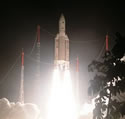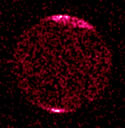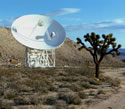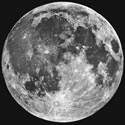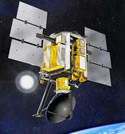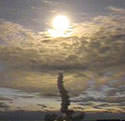
Image credit: NASA
The space shuttle Columbia roared into the Florida sky Friday morning, beginning an 11-day mission to upgrade the Hubble Space Telescope. The mission had originally been delayed a day because of unusually chilly weather, but everything was “go for launch” this morning. Columbia lifted off at 1122 GMT (6:22am EST) and is scheduled to meet up with the telescope early Sunday morning.
With the Hubble Space Telescope orbiting high overhead, the shuttle Columbia lifted off this morning on a complex mission to replace and upgrade key telescope systems through five challenging spacewalks.
Commander Scott Altman, Pilot Duane Carey, Flight Engineer Nancy Currie and spacewalkers John Grunsfeld, Rick Linnehan, Jim Newman and Mike Massimino blasted off of Launch Pad 39-A at the Kennedy Space Center at 5:22 a.m. Central time as Hubble orbited just west of Sarasota, Florida at an altitude of about 360 miles. Because of its brightness and elevation, the telescope was visible in the pre-dawn sky over the launch site as Columbia began its pursuit.
Less than nine minutes later, the pioneer shuttle was in orbit for the first time since July 1999, following an extensive modification period in which many of its systems were replaced and enhanced.
Columbia began a two-day chase to reach Hubble for its fourth service call, in which the observatory?s solar arrays, main power switching unit, and a gyroscopic pointing mechanism will be replaced by newer components. In addition, the spacewalkers will also install a new scientific instrument ten times more powerful than the Hubble?s Wide Field Planetary Camera to survey the universe and will attempt to restore an infrared instrument through the installation of a cooling system and an external radiator.
If all goes as planned, Currie will use Columbia?s robot arm to grapple Hubble shortly after 3 a.m. CST on Sunday, setting the stage for five consecutive days of servicing spacewalks beginning early Monday morning.
Columbia?s crew will spend the next few hours unpacking equipment, setting up computers and conducting the first of periodic engine firings that will occur over the next two days to refine the shuttle’s approach to Hubble. The shuttle crew will begin its first sleep period at 12:22 p.m. CST and will be awakened at 8:22 p.m. this evening to begin its first full day in orbit, designed to test the ship?s robot arm, spacesuits and rendezvous equipment which will be used over the next few days.
The next STS-109 mission status report will be issued Friday evening after Columbia?s crew is awakened.
Original Source: NASA News Release

